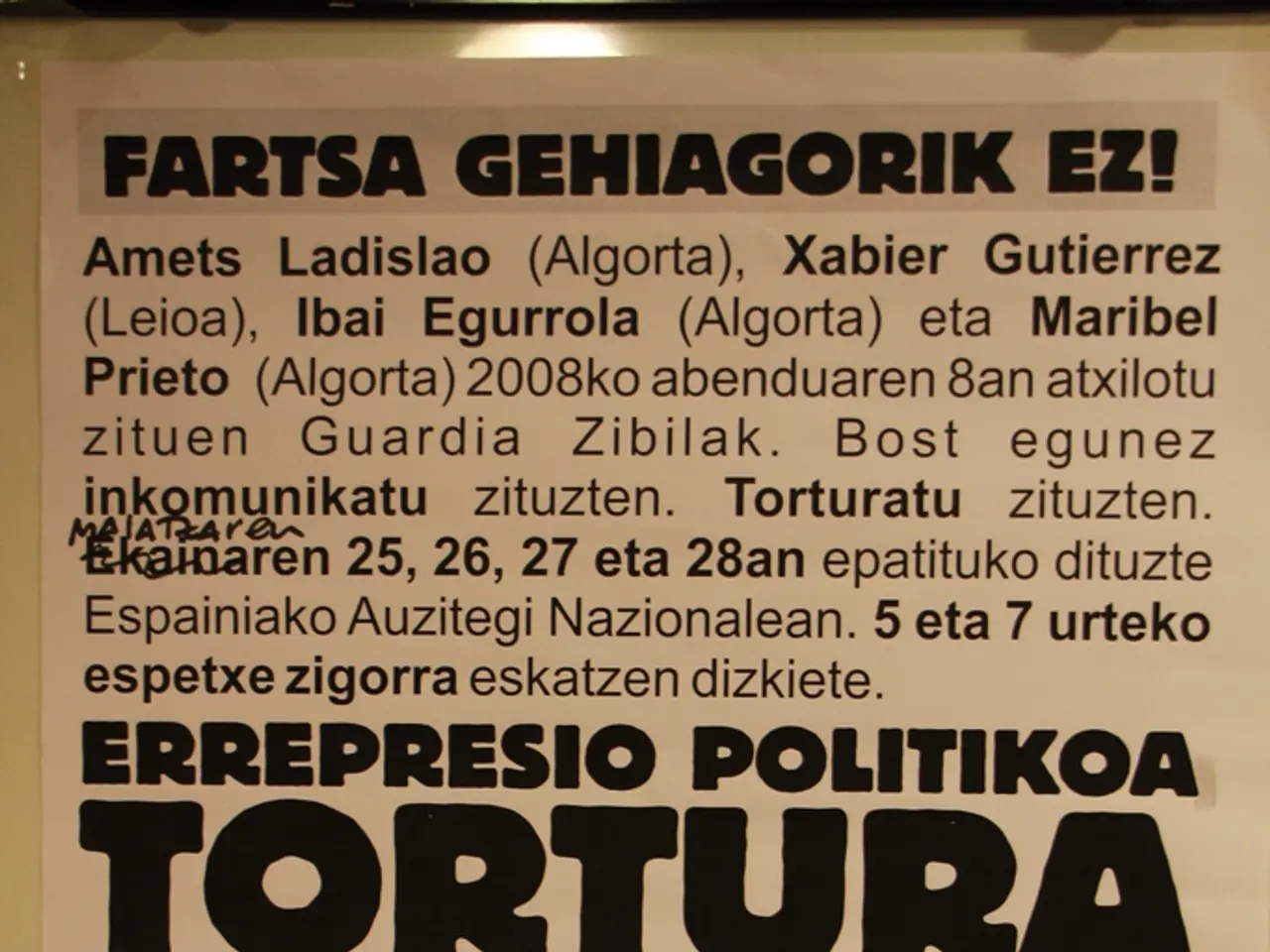Judge Selection Process Proposed for Change by Woidke
In an unexpected turn of events, the appointment process of judges to Germany's Federal Constitutional Court has been thrown into disarray due to disagreements between the Social Democratic Party (SPD) and the Christian Democratic Union (CDU)/Christian Social Union (CSU). These disputes, primarily centred around the nomination of SPD candidate Frauke Brosius-Gersdorf, have led to the postponement of planned elections.
Brosius-Gersdorf, who has held the chair for Public Law at the University of Potsdam since 2021, with a focus on Constitutional Law and Social Law, has faced criticism from within the CDU/CSU. Concerns about her nomination include allegations of plagiarism, her support for a mandatory COVID-19 vaccination policy, and perceptions of an overly liberal stance on abortion. These issues have caused reservations within the CDU/CSU, contributing to uncertainty and political tension in the vote.
Brandenburg's Minister-President, Dietmar Woidke (SPD), has expressed his concern over the way a qualified candidate has been discredited by some parts of the CDU/CSU. He has called on all parties involved to reach an agreement and has proposed a fresh start to the process, suggesting that the parties needed for a two-thirds majority, including the Left Party and the Greens, should be involved early on.
The Union, on the other hand, has nominated Federal Labour Court judge Günter Spinner as their candidate. However, the SPD has proposed an alternative candidate, Ann-Katrin Kaufhold, as a replacement for Brosius-Gersdorf. Woidke suggests that all candidates should withdraw and the German Bundestag should completely restart the procedure.
The political polarization in the selection process is evident, with the far-right Alternative for Germany (AfD) voting against the election and a far-right social media campaign influencing public perception of candidates. The SPD remains committed to Brosius-Gersdorf, but may reconsider to maintain coalition consensus amid the controversy.
The CDU/CSU's opposition to Brosius-Gersdorf reflects a departure from the usual consensus model, illustrating growing political polarization in the selection process. Typically, half of the Federal Constitutional Court's judges are elected by the Bundestag and half by the Bundesrat, each requiring a two-thirds majority in their respective chambers. The selection involves a parliamentary committee where the SPD and CDU/CSU usually alternate in proposing candidates, aiming for consensus to preserve the court’s authority and neutrality.
Brandenburg's Minister-President Woidke believes that the factions in the Bundestag should quickly find a way out of this situation and submit a solution. He advises including the opposition parties, excluding the AfD, early on in the process. The faction leadership could no longer guarantee their support for Brosius-Gersdorf, despite having previously agreed to do so.
The political impasse threatens the impartiality and political influence in the Federal Constitutional Court's appointments, a matter of significant concern for many in Germany. The Bundestag postponed the election of three judges in July 2025, and it remains to be seen how this situation will unfold in the coming months.
In the wake of disputes regarding the nomination of SPD candidate Frauke Brosius-Gersdorf, policy-and-legislation issues such as her stance on mandatory COVID-19 vaccination and abortion have become key points of political discussions, emerging as part of the general-news scene. The diverse opinions on Brosius-Gersdorf's nomination, including allegations of plagiarism and concerns about her perceived liberal stances, have resulted in political polarization, stirring tensions among the Social Democratic Party (SPD) and the Christian Democratic Union (CDU)/Christian Social Union (CSU).







